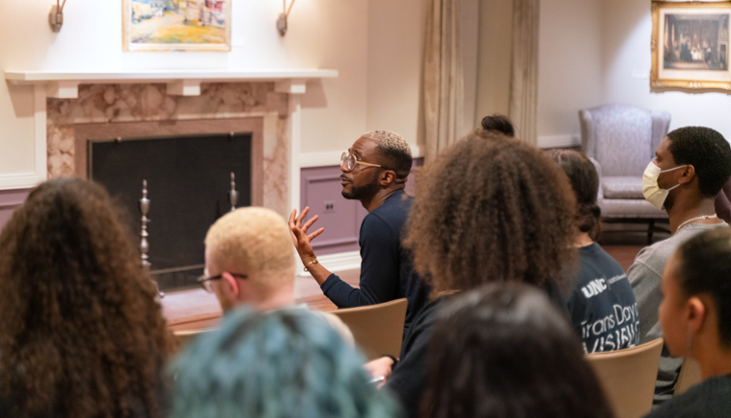Program Overview

Traditionally the social sciences and humanities have found their subject matter within the contours of the western nation-state system and the European and American lineage of western history and philosophy. The first wave of intellectual developments in Black Studies from the 1960s onwards challenged the neglect and exclusion of critical analyses of Atlantic slavery, western colonialism and American racism; and facilitated research in the expressive traditions of Black cultural and political movements and the racial dynamics of contemporary social life and public policy. This was an extremely important period of nation-centered and historiographic scholarship, opening up new fields of sustained inquiry, and underwriting the longevity and vitality of the Black intellectual tradition.
Consequently, over the last 40 years Black Studies with its emphasis on national intellectual inclusiveness and critique has to a considerable extent influenced, if not transformed, the epistemologies and methodologies of the social sciences and humanities in the U.S. At the same time, the scholarship produced by Black Studies has been disseminated through a dynamic transnational circuit of intellectuals, literary movements and knowledge production across the urban centers of Latin America, Canada, the Caribbean, Africa and Europe.
However, at the turn of the 21st century, Black Studies, like many inter-disciplines spanning the social sciences and humanities, is becoming more responsive to and influenced by a contemporary world that is increasingly interdependent and subject to diverse representations and questionings. The world is no longer centered, if indeed it ever was, on the singular cultures of self-enclosed or autonomous nations. The multicultural, multi-ethnic, multi-faith and gendered dimensions of national spaces and histories are accelerating to prominence under the influence of economic and cultural forms of globalization. Intellectual orientations are increasingly being underwritten and overwritten by questions of trans-nationalism and deterritorialization.
Currently we are experiencing a new wave of diaspora-centered Black Studies where greater emphases on diversity and inter-disciplinarity are assuming greater prominence in dialogue with the changing complexity of the modern world. The latest developments in Black Studies are contributing to a new wave of intellectual and intercultural developments which are symptomatic of the changing vicissitudes of the world, where the recognition of worldly interdependence, cultural diversity and academic interdisciplinarity are now indispensable for the production of knowledge in the 21st century.
In this context our PhD program is very much a part of and contributes to this new wave of Black Studies, oriented both to the historical world that produced the African diaspora as well as to the contemporary world that continues to be shaped by the politics, popular cultures, and social movements of Black populations and their relations with various groups. Black Studies in the 21st century is a dynamic field characterized by a history of interdisciplinarity to develop new forms of intellectual work that arise because of trends towards interdependency and multilateralism within and across nations, particularly throughout the African diaspora. The scholarship of Black Studies is poised to respond and contribute to the intellectual debates that arise from these trends. It also provides for the continued development and expansion of fields of inquiry that explore the formation and intersection of race, ethnicity, class, gender, and sexuality.
The PhD program in Black Studies at Northwestern University is led by faculty with diverse interests in the histories, experiences, and cultures of people of African descent around the world. This is reflected in the depth and range of our scholarship as well as the courses we currently offer (and those we will mount in the future). The department is allied closely with other departments and programs within the university, including Anthropology, African Studies, American Studies, Art History, Asian American Studies, Comparative Literary Studies, English, Gender Studies, History, Latino/a Studies, Performance Studies, the Interdisciplinary PhD in Theatre and Drama, Latin American & Caribbean Studies, Political Science, Sociology, and others. Black Studies PhD students may earn a graduate certificate in Gender Studies and in African Studies, or they may participate in the Interdisciplinary Cluster Initiative, a program designed to help graduate students during their academic career at Northwestern by fostering connections with students and faculty in other programs.
The Department of Black Studies' administrative offices and faculty offices are housed on the 5th floor of Crowe Hall. General information on graduate study at Northwestern University is available on The Graduate School's Website.
